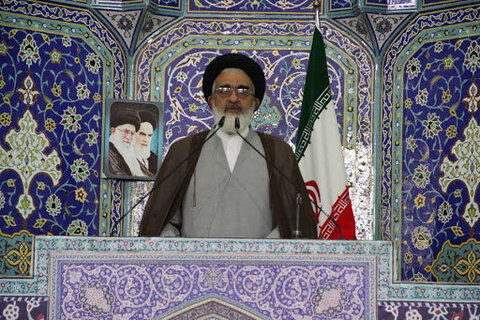Hawzah News Agency- Shia scholar Ayatollah Sayyed Mohammad Saeedi, in his Friday prayer sermon in Qom on September 16, which was held in Qom's Mausoleum, pointed to Arbaeen Walk and said,” Arbaeen Walk proves that Imamate is a culture and the bond we have with the Imam (PBUH) during his lifetime and that it continues even after their lives.”
Pointing out that there are many tips and lessons in the pilgrimage of Aba Abdullah al-Hussein (PBUH), he said,” The Arbaeen pilgrimage has come down to us from Imam Sadiq (PBUH), and Imam Jafar al-Sadiq aimed to guide and save the Karbala uprising; it expresses the awakening of the Islamic World.”
Regarding the nuclear negotiations, the Shia scholar stated, “by evaluating the behavior of the U.S. in the negotiation process, it is evident that the US will not move towards lifting the sanctions, therefore, in order to overcome and solve the problems resulting from the sanctions, we must move the conditions in the field of action in a direction that is fruitful; the only way to do that is to neutralize the sanctions that the supreme leader of the revolution also emphasizes.”
The custodian of Lady Masuma (PBUH) Shrine further stated,” Although the lifting of the sanctions is in the hands of the enemy and we have emphasized that they should remove the sanctions, but the important thing here is that we should not get complacent about negotiations and we should trust in God. Instead we should make effort to strengthen mutual ties with neighboring countries and neutralize regional and extra-regional sanctions.”
The Qom Friday Prayer speaker said that Islam, the Holy Prophet (PBUH) and Ahl al-Bayt (PBUT) came for human development and said,” A Muslim is someone who obeys the leadership and shows up wherever they are called upon and does what Islam and their leaders ask them to do.”

